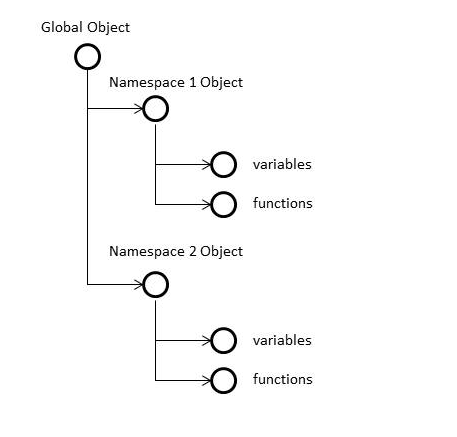[Translation][Spanish] Node.js, from English (1,050 words) [N'39]
Github Repository
https://github.com/nodejs/i18n
Project Details
By definition, Node.js is a Java Runtime Environment (JRE). But it is more than just that. While common JREs function as machine backups that allow users to smoothly run JavaScript on their browsers and applications, this open-source project functions as an app that manages Java code by itself. It's practical uses for developers are endless. It grants an extraordinarily versatile platform for designing code, programs, websites and other applications. And that isn't all: Node provides a virtual facility for testing the proper work of Java-driven programs and devices –and their planned updates–, helping to find bugs, solve errors, fix code and vastly improving their performance.
I believe all the amazing uses of Node are to be considered by themselves and I declare myself a fan of the project. But, besides, I support it for its functionality as a medium for bringing to reality countless creations that can be as good as Node itself. If you can dream it –and code it in JavaScript–, then your imagination is the only limit!The open translation of Node to thirty-three (33) languages proves the advantages of open-source projects when it comes to diversification of knowledge and worldwide spreading of useful tools.
Ahead, there is the link of the program's webpage:
Contribution Specifications
Translation Overview
This is my 39th contribution to Node.js as a translator. For this collaboration, I finished the translation of the errors.md file of Node.js' version 6, which contains the documentation of the error processes and their handling within the program, and began translating the globals.md file of the same version, constituted by the specification of the use of JavaScript global objects.
To refresh your minds, I'll refer my [previous contribution] and remind you what errores are:
Errors are the processes through which unwanted or unexpected behaviors are unchained in the regular course of action of a particular software. These can occur by a lot of diverse reasons and, so, they show themselves as a whole set of different disruptions in the normal realization of the tasks of programs...
Days ago, I already spoke about some of the most common programming errors. Now it's time to talk about the most common JavaScript errors. These are:
- {EvalError}: which is thrown when calls to the evaluation function [eval()] fail. These come specially important when we're dealing with REPLs, since they can cause a disruption in the loop if not handle properly.
- {SyntaxError}: thrown when inputs made by user don't correspond with the correct JavaScript language, as expected. As an example, if you were a machine and received a message in Chinese (assuming you don't speak Chinese), you wouldn't know how to interpret it, as you are an English speaker.
- {RangeError}: thrown when the program receives as an input a value that cannot be taken for certain specific operation. Example: the machine is expecting a value between 50 and 150, and you (pay attention, please!) introduce 58,937.2... 🤦
- {ReferenceError}: thrown when a program is entered with variables that are undefined, and therefore, are unknown to the functions that are about to perform on them.
- {TypeError}: thrown when it is received an argument of a different type that the one that was expected.
- {URIError}: thrown when a variable meant for the global URI (Uniform Resource Identifier) is unproperly used, according to the specifications of the program.

Together, these errors constitute one of the four kind of errors tha can commonly take place during the execution of a Node.js' program. The other three are:
- System errors caused by logic limitations on the operating system, as trying to open files that don't exist, trying to perform operations with programs already closed, etc.
- Errors defined by users when programming.
- Assertion errors, usually raised by the specially dedicated "assert" module.

As I previousky stated, for this collaboration I also started translating the globals.md file of the version 6. I'll explain what globals are:
In this file, globals refer to global objects. And what are global objects? These are objects that always exist and are inherent to the global scope. And what are scopes? Basically, what scopes are are specifications about in which point of the execution of the code are variables, functions and objects accessible. There are two kinds of scopes:
- Local
- Global
And what does the existence of global objects affect the execution of the code? It means that all the objects within said scope are linked to those objects (variables) and no matter how the local (object-specific) objects change, all variables are subject to globals.
Below, you can see a diagram that depicts the structuration of the local objects (namespaces) and global object of said context and their influence on its variables and functions:

You can find out more about the aforementioned concepts here:
- https://javascript.info/global-object
- https://www.w3schools.com/js/js_scope.asp
- https://developer.mozilla.org/en-US/docs/Glossary/Global_object
- https://www.htmlgoodies.com/html5/javascript/handling-javascript-errors-by-type.html
- https://developer.mozilla.org/en-US/docs/Web/JavaScript/Reference/Global_Objects/Error
- https://www.tutorialspoint.com/javascript/javascript_error_handling.htm
Thanks for taking your time to read! Expect more information and tips on the next report :)

Work example #01:
English:
<0>EMFILE</0> (Too many open files in system): Maximum number of <1>file descriptors</1> allowable on the system has been reached, and requests for another descriptor cannot be fulfilled until at least one has been closed.
Spanish:
<0>EMFILE</0> (Demasiados archivos abiertos en el sistema): El número máximo de <1>descriptores de archivos</1> permitidos en el sistema ha sido alcanzado, y las solicitudes para otro descriptor no pueden ser cumplidas hasta que al menos uno de estos haya sido cerrado.
Work example #02:
English:
<0>ETIMEDOUT</0> (Operation timed out): A connect or send request failed because the connected party did not properly respond after a period of time.
Spanish:
<0>ETIMEDOUT</0> (Se agotó el tiempo de la operación): Una solicitud de conexión o envío falló debido a que la parte conectada no respondió adecuadamente luego de un período de tiempo.
Work example #03:
English:
For a main program this is not necessarily the same as the file name used in the command line.
Spanish:
Para un programa principal, esto no es necesariamente lo mismo que el nombre de archivo utilizado en la línea de comando.
Languages
This translation was made from English to Spanish.
I got plenty experience translating and proofreading this project as an Utopian contributor. I collaborate here as translator and Language Moderator of the Da-Vinci/Utopian Spanish translation team. Besides this project, I have experience translating and proofreading The Curious Expedition, Ancap-ch, Byteball Wiki, OroCrm and BiglyBT.
Word Count
- The amount of words translated in this contribution is: 1,050.
Note: This number is the result of subtracting the complete sum of non-translatable content to the word-count Crowdin has done for the period in which this contribution was done.
- The total amount of words translated in this project (as a Da-vinci/Utopian translator) is: 48,418.
Previous Translations of the Project
- Contribution N'01. Submitted on September 13th, 2018.
- Contribution N'02. Submitted on September 15th, 2018.
- Contribution N'03. Submitted on September 17th, 2018.
- Contribution N'04. Submitted on September 19th, 2018.
- Contribution N'05. Submitted on September 21th, 2018.
- Contribution N'06. Submitted on September 22th, 2018.
- Contribution N'07. Submitted on September 23th, 2018.
- Contribution N'08. Submitted on October 1st, 2018.
- Contribution N'09. Submitted on October 8th, 2018.
- Contribution N'10. Submitted on October 14th, 2018.
- Contribution N'11. Submitted on October 15th, 2018.
- Contribution N'12. Submitted on October 18th, 2018.
- Contribution N'13. Submitted on October 21st, 2018.
- Contribution N'14. Submitted on October 24th, 2018.
- Contribution N'15. Submitted on October 27th, 2018.
- Contribution N'16. Submitted on October 31th, 2018.
- Contribution N'17. Submitted on November 3rd, 2018.
- Contribution N'18. Submitted on November 4th, 2018.
- Contribution N'19. Submitted on November 6th, 2018.
- Contribution N'20. Submitted on November 17th, 2018.
- Contribution N'21. Submitted on November 24th, 2018.
- Contribution N'22. Submitted on December 7th, 2018.
- Contribution N'23. Submitted on December 15th, 2018.
- Contribution N'24. Submitted on December 20th, 2018.
- Contribution N'25. Submitted on December 26th, 2018.
- Contribution N'26. Submitted on December 28th, 2018.
- Contribution N'27. Submitted on December 30th, 2018.
- Contribution N'28. Submitted on January 9th, 2019.
- Contribution N'29. Submitted on January 10th, 2019.
- Contribution N'30. Submitted on January 12th, 2019.
- Contribution N'31. Submitted on January 18th, 2019.
- Contribution N'32. Submitted on January 19th, 2019.
- Contribution N'33. Submitted on January 24th, 2019.
- Contribution N'34. Submitted on January 28th, 2019.
- Contribution N’35. Submitted on January 31st, 2019.
- Contribution N’36. Submitted on March 3rd, 2019.
- Contribution N’37. Submitted on March 6th, 2019.
- Contribution N’38. Submitted on April 3rd, 2019.
Proof of Authorship
This translation was made between March 9th and 11th. You can check the translation record in my Crowdin account [here], the activity on the project's Crowdin [here] and a summary of recent additions to the project [here].

Hi @alejohannes,
Thank you for submitting your contribution!
Node.js is a very interesting project that contains many code values and terms related to computer science. Its difficulty relies on the fact that we must pay a lot of attention to the code in order to deliver the most accurate translation possible.
Your presentation post is informative, provides useful and relevant information, as well as your personal feedback in a very dynamic way.
The visual presentation of the post is also very good and fun to read. Kudos for always adding your personal touch to the report :)
Your wording and spelling are correct and appropriate for the Spanish language and for the project.
I'm looking forward to your next contribution!
Your contribution has been evaluated according to Utopian policies and guidelines, as well as a predefined set of questions pertaining to the category.
To view those questions and the relevant answers related to your post, click here.
Chat with us on Discord
Thank you for your review, @marugy99! Keep up the good work!
Hi @alejohannes!
Your post was upvoted by @steem-ua, new Steem dApp, using UserAuthority for algorithmic post curation!
Your post is eligible for our upvote, thanks to our collaboration with @utopian-io!
Feel free to join our @steem-ua Discord server
Hey, @alejohannes!
Thanks for contributing on Utopian.
We’re already looking forward to your next contribution!
Get higher incentives and support Utopian.io!
Simply set @utopian.pay as a 5% (or higher) payout beneficiary on your contribution post (via SteemPlus or Steeditor).
Want to chat? Join us on Discord https://discord.gg/h52nFrV.
Vote for Utopian Witness!